1. Always Feeling Anxious
 image source: reddit
image source: reddit
Persistent feelings of anxiety, even in seemingly non-threatening situations, could be a sign of childhood trauma. Your mind may associate certain triggers or reminders with past traumatic experiences, leading to heightened levels of anxiety as a coping mechanism.
2. Or Fearful About Everything
 image source: reddit
image source: reddit
Constant fearfulness or hypervigilance, where you perceive threats everywhere, can indicate unresolved childhood trauma. Traumatic experiences during childhood can create a lasting sense of insecurity and a fear of the world around you, making it difficult to feel safe or trust others.
3. Struggling To Make Friendships
 image source: reddit
image source: reddit
Difficulty forming and maintaining friendships may stem from childhood trauma. Trust issues, fear of rejection, or low self-esteem resulting from past experiences can hinder your ability to connect with others on a deep and meaningful level. Friendships can often be our route to safety!
4. Or Maintain Them Afterwards
 image source: reddit
image source: reddit
Even if you manage to form friendships, maintaining them can be a challenge if you're grappling with unresolved childhood trauma. Patterns of behavior learned in response to trauma, such as withdrawing or pushing people away, can strain relationships and lead to isolation.
5. You're Single And It Doesn't Look Like Changing
 image source: reddit
image source: reddit
Persistent singleness despite a desire for intimate relationships may be linked to childhood trauma. Trust issues, fear of vulnerability, or difficulties with intimacy stemming from past experiences can hinder your ability to form and sustain romantic relationships.
6. Feeling Worthless
 image source: reddit
image source: reddit
A pervasive sense of worthlessness or low self-esteem can be a consequence of childhood trauma. Negative messages or experiences during childhood may lead you to internalize feelings of inadequacy or unworthiness, impacting your sense of self-worth. No one deserves to feel this way!
7. You Always Feel Guilty

image source: reddit
Excessive feelings of guilt or shame, even when you haven't done anything wrong, can be indicative of childhood trauma. Traumatic experiences may leave you with deep-seated feelings of responsibility or self-blame, regardless of actual culpability. It's never your fault!
8. Regular Mood Swings
 image source: reddit
image source: reddit
Frequent mood swings or emotional instability may be a result of unresolved childhood trauma. Trauma can disrupt your emotional regulation, leading to unpredictable shifts in mood and difficulty managing intense emotions. This can be part of the reason it is so difficult to maintain friendships!
9. You Get Angry Easily
 image source: reddit
image source: reddit
Difficulty controlling anger or experiencing frequent outbursts of rage could be a response to childhood trauma. Unresolved feelings of hurt, betrayal, or powerlessness from past experiences may manifest as explosive anger in the present. This is another potential wall that stops people getting on!
10. You Like To Isolate Yourself
 image source: reddit
image source: reddit
A preference for isolation or withdrawal from social interactions may indicate unresolved childhood trauma. Feeling overwhelmed by triggers or struggling with trust issues can lead you to seek solace in solitude rather than risking emotional exposure in social settings. It isn't always bad to be alone, but sometimes it can!
11. You Avoid Your Parents Now
 image source: reddit
image source: reddit
Avoidance of parental figures, even as an adult, may signal unresolved childhood trauma. Fear, resentment, or a desire to protect yourself from further harm can drive avoidance behaviors, making it challenging to maintain a relationship with your parents. This might be something they deserve.
12. You Have Nightmares
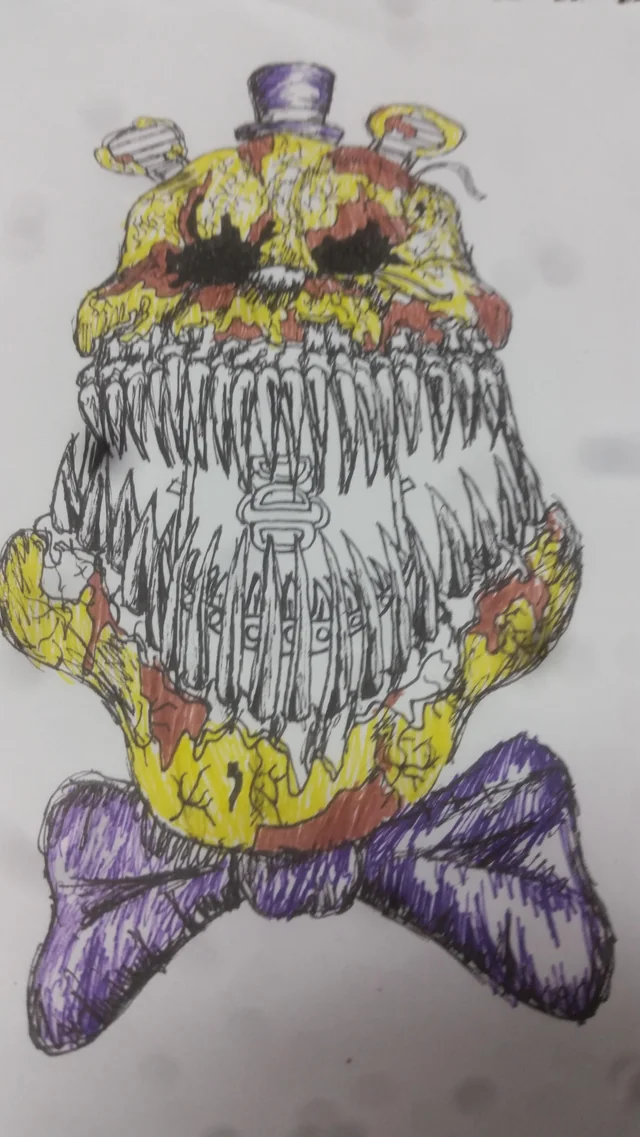 image source: reddit
image source: reddit
Frequent nightmares, especially ones related to past traumatic experiences, can be a sign of unresolved childhood trauma. The subconscious mind may use dreams as a way to process and cope with deeply buried emotions and memories associated with the trauma.
13. You Struggle Trusting Others
 image source: reddit
image source: reddit
Difficulty trusting others, whether in personal relationships or professional settings, is common among individuals with childhood trauma. Betrayal or abandonment during childhood can lead to deep-seated trust issues that persist into adulthood. Again, this might damage your ability in life.
14. Even The Cops
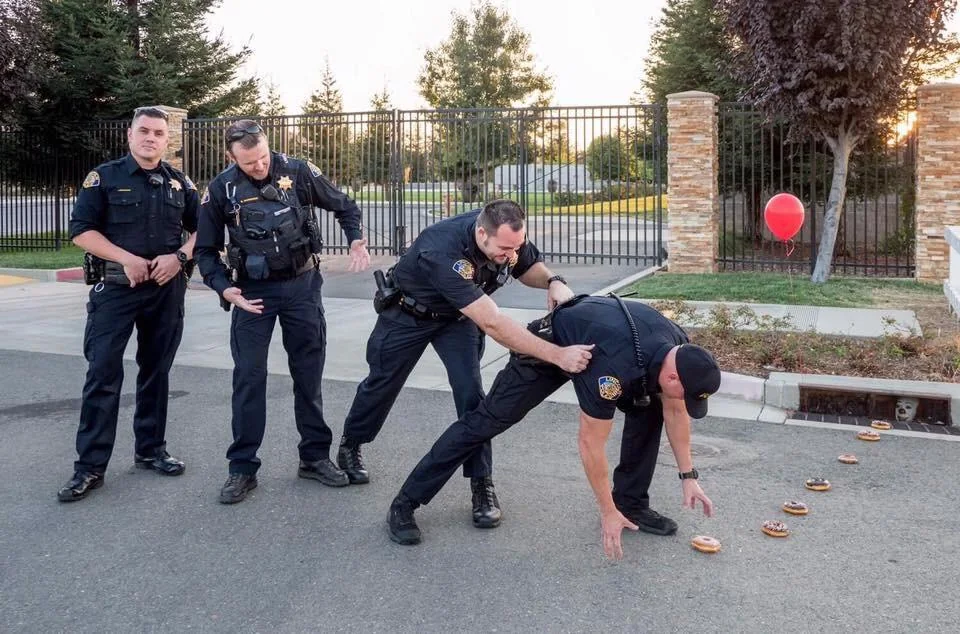 image source: reddit
image source: reddit
A pervasive distrust of authority figures, including law enforcement, may stem from childhood trauma. Negative experiences with authority figures during childhood can lead to a generalized distrust of those in positions of power or authority. You might not have felt like they helped when you needed them!
15. Drinking A Lot Of Alcohol
 image source: reddit
image source: reddit
Using alcohol as a coping mechanism to numb emotional pain or escape from traumatic memories is a common pattern among individuals with childhood trauma. Alcohol may temporarily alleviate distress, but it can also exacerbate mental health issues and lead to dependency.
16. Relying On Cigarettes To Destress
 image source: reddit
image source: reddit
Using cigarettes as a means to cope with stress or regulate emotions is another common behavior among individuals with childhood trauma. Nicotine may provide a temporary sense of relief or distraction from intrusive thoughts and feelings. It might just end up making you ill in the long run!
17. Feeling Emotionally Numb
 image source: reddit
image source: reddit
Emotional numbness, or feeling disconnected from one's emotions, can be a defense mechanism in response to childhood trauma. Overwhelming emotions may lead to shutting down emotionally as a way to protect oneself from further pain. People might think you're not empathetic!
18. Trouble Sleeping
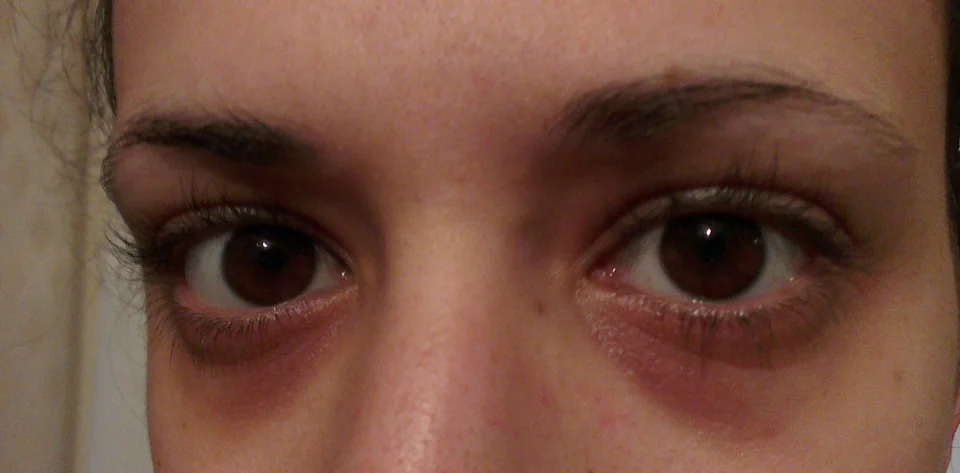 image source: reddit
image source: reddit
Insomnia or disrupted sleep patterns are often associated with childhood trauma. Hyperarousal, nightmares, or intrusive thoughts can make it difficult to relax and fall asleep, leading to chronic sleep disturbances. This is obviously something that might end up making you struggle with your daily life.
19. Always Feeling Depressed
 image source: reddit
image source: reddit
Persistent feelings of sadness, hopelessness, or emptiness may indicate underlying depression, which can be linked to childhood trauma. Traumatic experiences can disrupt brain chemistry and increase vulnerability to mood disorders. Many of us go through periods like this, it is nothing to be ashamed of!
20. Needing To Be In Charge
 image source: reddit
image source: reddit
A need for control or a tendency to seek positions of authority may be a response to childhood trauma. Trauma can leave individuals with a sense of powerlessness, leading them to overcompensate by seeking control in various aspects of their lives. They need to make sure that they are safe!
21. Struggling To Eat
 image source: reddit
image source: reddit
Disordered eating patterns, such as binge eating or restrictive eating, can be a manifestation of childhood trauma. Trauma may disrupt appetite regulation or lead to the use of food as a means of coping with emotional distress. Anything might end up being a bit of a trigger for someone!
22. Gambling
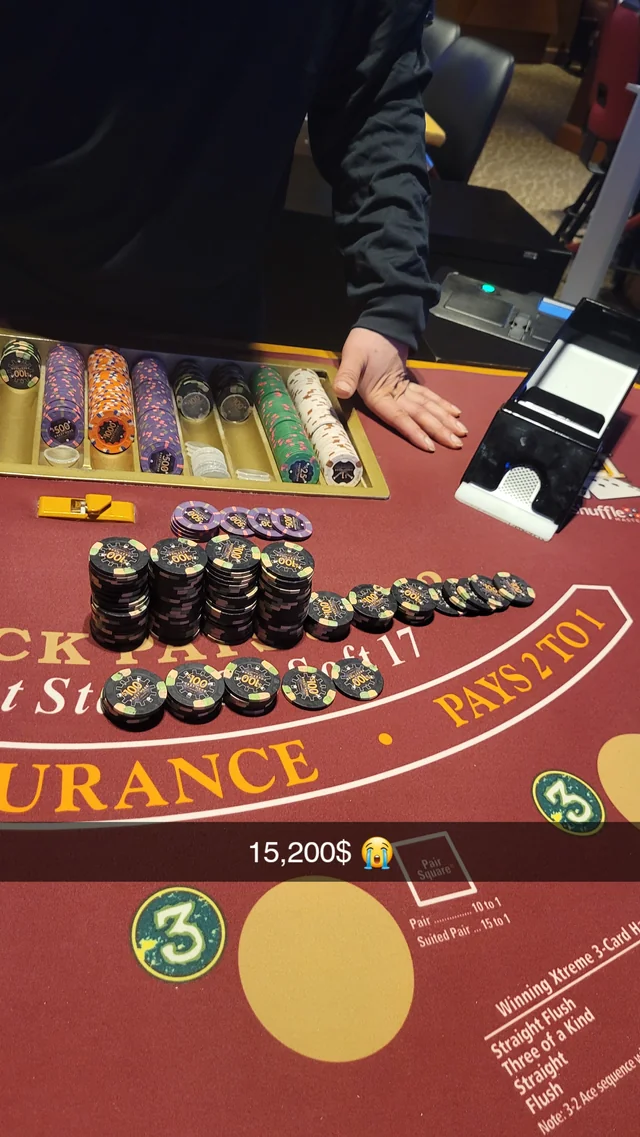 image source: reddit
image source: reddit
Using gambling as a coping mechanism is common among individuals who have experienced childhood trauma. Gambling provides a temporary escape from painful memories and emotions, but it can lead to financial problems and exacerbate existing issues. Try and avoid any form of gambling!
23. Always Buying Yourself Stuff
 image source: reddit
image source: reddit
Compulsive or excessive spending on material possessions can be a coping mechanism for individuals dealing with childhood trauma. This behavior often stems from an attempt to fill an emotional void or numb painful feelings. Acquiring items may provide a temporary sense of pleasure or control, but it doesn't address the underlying issues causing the distress.
24. Not Remembering Large Chunks Of Your Childhood
 Image Source: Reddit
Image Source: Reddit
Memory gaps or difficulty recalling significant portions of childhood may indicate dissociation, a coping mechanism used to block out traumatic memories. The brain may suppress these memories to protect the individual from emotional pain. These could be some of the worst and most distressing memories!
25. You Struggled At School
 image source: reddit
image source: reddit
Childhood trauma can impact academic performance due to difficulties with concentration, memory, and emotional regulation. Trauma-related stress can interfere with learning and social interactions, leading to academic struggles. This might have set you on a troublesome path in life!
26. You Can't Stay In A Job For A Long Period
 image source: reddit
image source: reddit
Difficulty maintaining steady employment may stem from unresolved trauma. Trauma can affect self-esteem, relationships with authority figures, and overall job satisfaction, leading to frequent job changes or instability in the workplace. It's all about finding a job that suits you as well as working with people you feel comfortable with.
27. Driving Recklessly
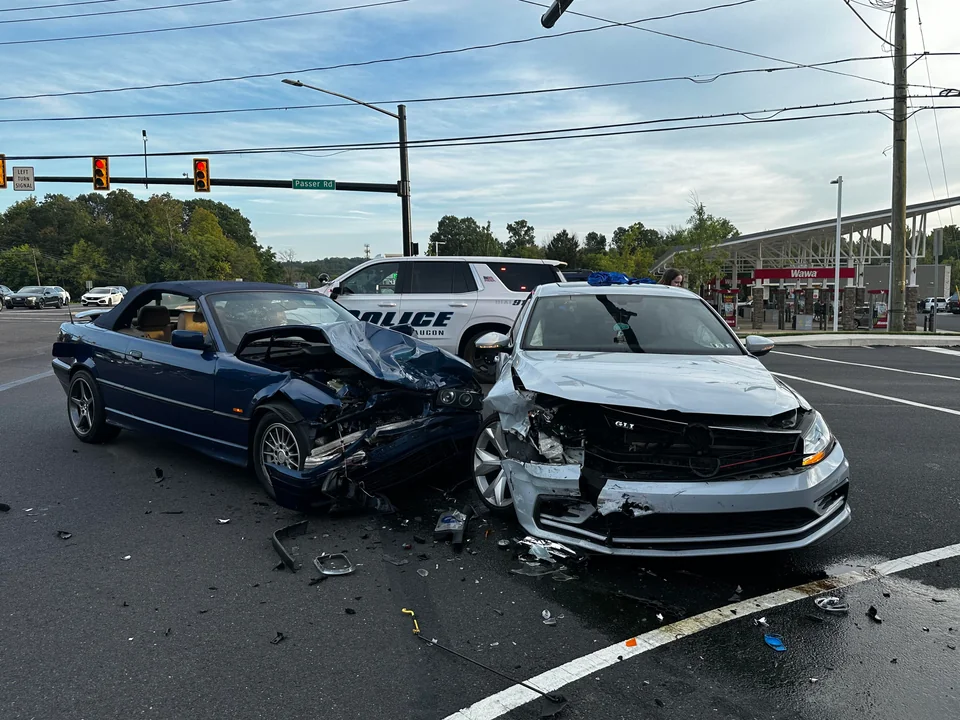 image source: reddit
image source: reddit
Engaging in reckless behavior while driving, such as speeding, aggressive maneuvers, or disregarding traffic laws, can be a manifestation of underlying trauma. Reckless driving may serve as a way to unconsciously seek thrills or distractions from emotional pain, providing a temporary escape from traumatic memories or feelings of powerlessness.
28. Struggling With Your Body Image
 image source: reddit
image source: reddit
Childhood trauma, especially if it involves body shaming or abuse, can lead to negative body image and dissatisfaction with physical appearance. Trauma-related feelings of shame and worthlessness can manifest as ongoing struggles with body image. You might end up not eating in order to try and put your mind at ease.
29. Always Feeling Fatigued
 image source: reddit
image source: reddit
Chronic fatigue or low energy levels can result from the physical and emotional toll of childhood trauma. Trauma-related stress disrupts sleep patterns, drains energy reserves, and contributes to a constant feeling of exhaustion. It can be particularly difficult to get about your day without sleep!
30. Having Panic Attacks
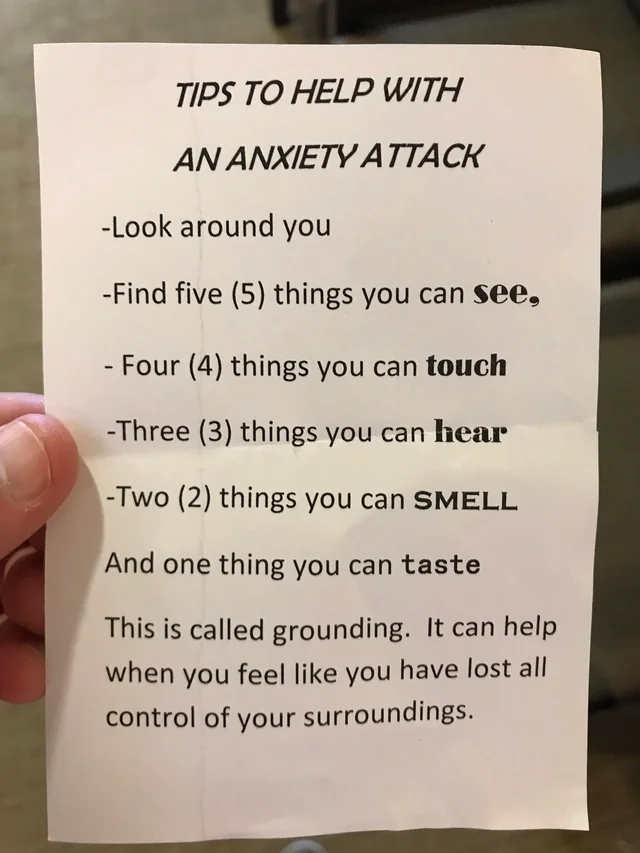 image source: reddit
image source: reddit
Experiencing sudden and intense episodes of panic or anxiety can be a symptom of unresolved childhood trauma. Traumatic experiences can trigger the body's fight-or-flight response, leading to overwhelming feelings of fear and physical distress during panic attacks.
Now Here Are Some Ways You Can Battle Those Feelings... 31. Try Therapy
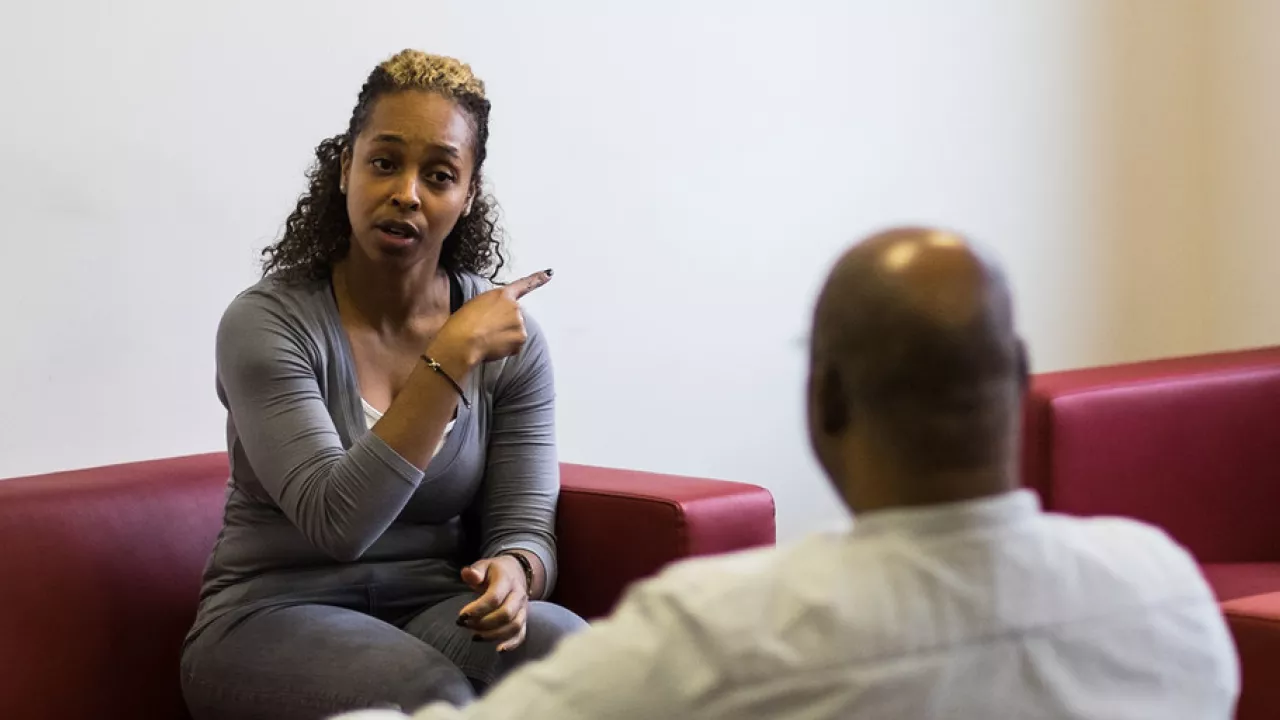 image source: university of east london
image source: university of east london
Seeking therapy with a qualified mental health professional can be an effective way to address and heal from childhood trauma. Therapy provides a safe and supportive environment to explore past experiences, understand their impact on current emotions and behaviors, and learn coping strategies to manage symptoms.
32. Make Your Home A Safe Place
 image source: reddit
image source: reddit
Creating a safe and comforting environment at home can help alleviate feelings of anxiety and distress associated with childhood trauma. Surround yourself with comforting objects, establish healthy boundaries, and cultivate a sense of security within your living space.
33. Spend Time With Your Close Friends
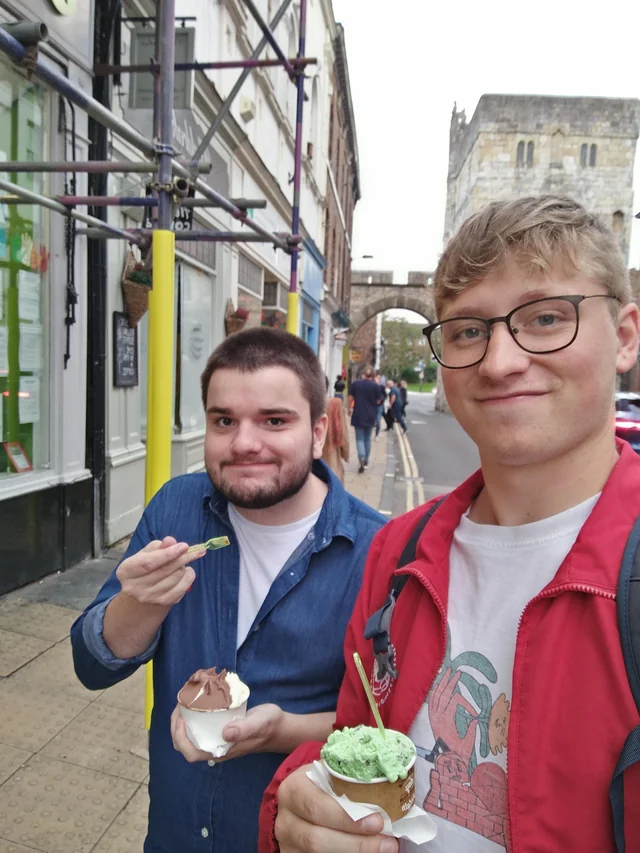 image source: reddit
image source: reddit
Nurturing supportive relationships with close friends can provide invaluable emotional support and validation. Spending time with trusted friends who understand and accept you can help counter feelings of loneliness and isolation often experienced by trauma survivors.
34. Try Enjoying Your Hobbies
35. Use The Trauma Based Services Available To You
 image source: verywell mind
image source: verywell mind
Take advantage of trauma-informed services and resources available in your community, such as support groups, hotlines, or specialized trauma therapy programs. These services are designed to provide tailored support and guidance to individuals navigating the effects of childhood trauma.
36. Try Out Meditation
 image source: reddit
image source: reddit
Incorporating meditation and mindfulness practices into your daily routine can help calm the mind, reduce stress, and increase self-awareness. Mindfulness techniques can be particularly beneficial for trauma survivors in managing intrusive thoughts and promoting emotional regulation.
37. Use Exercise As A Way To Distract Yourself
 image source: reddit
image source: reddit
Engaging in regular exercise not only benefits physical health but can also serve as a powerful tool for managing symptoms of childhood trauma. Physical activity releases endorphins, which can improve mood and reduce feelings of anxiety and depression.
38. Try Some Stress-Reduction Strategies
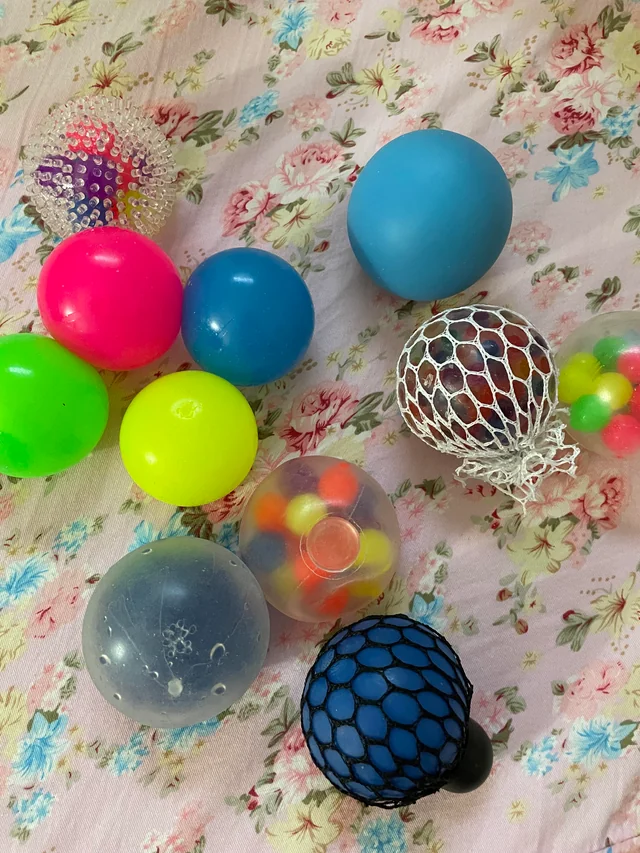 image source: reddit
image source: reddit
Experiment with various stress-reduction techniques, such as deep breathing exercises, progressive muscle relaxation, or aromatherapy. Finding healthy ways to manage stress can help alleviate the physiological and psychological effects of childhood trauma.
39. Celebrate The Small Things
 image source: reddit
image source: reddit
Practice gratitude and celebrate small victories and moments of joy in your life. Recognizing and appreciating the positive aspects of each day can help shift your focus away from past trauma and foster a sense of optimism and resilience. Every small achievement you make is still worth celebrating!
40. Eat Healthily
 image source: reddit
image source: reddit
Maintaining a balanced and nutritious diet is essential for overall well-being, including mental health. Fueling your body with nourishing foods can support brain function, stabilize mood, and improve energy levels, helping you better cope with the challenges of childhood trauma.
41. Practice Journalling
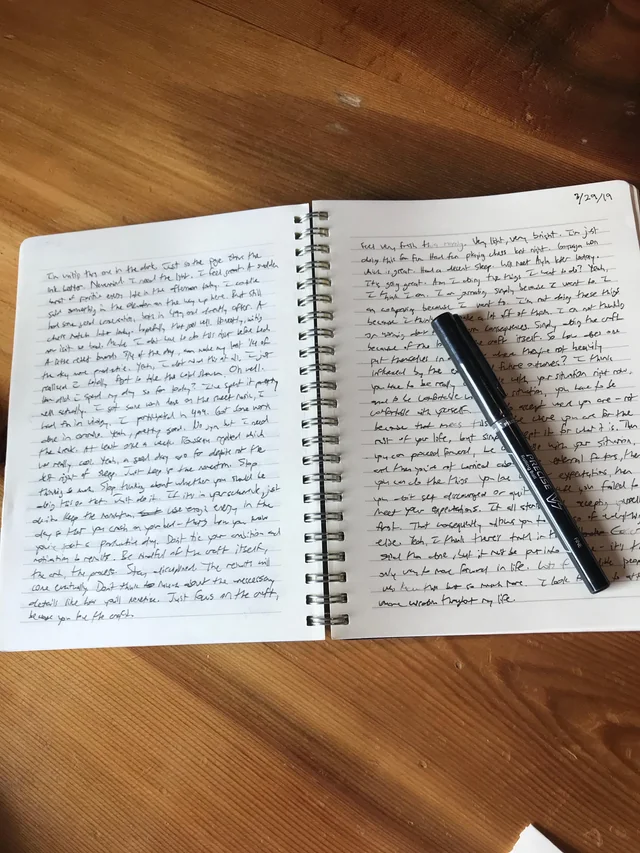 image source: reddit
image source: reddit
Keeping a journal can be a therapeutic way to process emotions, reflect on experiences, and gain insight into patterns of thought and behavior. Writing about your feelings, thoughts, and experiences related to childhood trauma can help you make sense of your emotions and work through unresolved issues in a safe and private space.
42. Avoid Drinking Too Much
 image source: reddit
image source: reddit
While alcohol may offer temporary relief from emotional pain, excessive drinking can exacerbate symptoms of childhood trauma and lead to negative consequences for your mental and physical health. Limiting alcohol consumption or avoiding it altogether can support your overall well-being and aid in your healing journey.
43. Or Any Substances
 image source: reddit
image source: reddit
Using substances as a way to cope with childhood trauma can lead to dependency, worsen mental health symptoms, and hinder the healing process. Avoiding the use of drugs or other substances allows you to confront your emotions and develop healthier coping strategies that promote long-term recovery.
44. Go On Nature Walks
 image source: reddit
image source: reddit
Spending time in nature can have a calming and grounding effect on your mental and emotional well-being. Going on nature walks allows you to connect with the beauty of the natural world, reduce stress levels, and gain perspective on life's challenges, helping you find peace and solace amidst the turmoil of childhood trauma.
45. Turn To Religion If That Works For You
 image source: reddit
image source: reddit
For some individuals, spirituality and religious practices can provide comfort, meaning, and a sense of community in the aftermath of childhood trauma. Engaging in religious rituals, prayer, or connecting with a supportive religious community can offer solace and hope during difficult times.
46. Meet Other Trauma Survivors
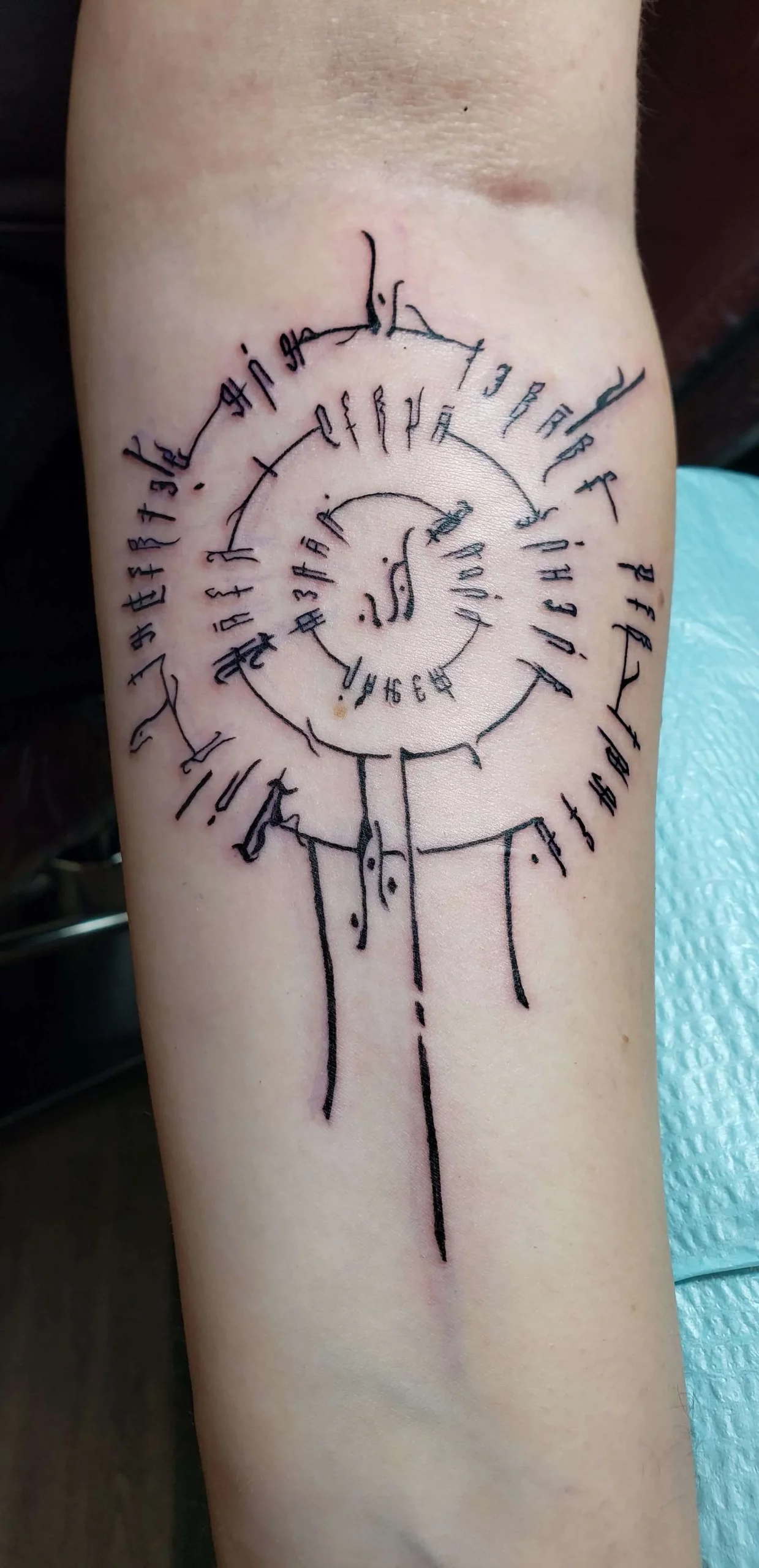 image source: reddit
image source: reddit
Connecting with other trauma survivors through support groups, online forums, or therapy can be incredibly validating and empowering. Sharing experiences, exchanging coping strategies, and receiving support from others who understand can help you feel less alone and more understood on your healing journey.
47. Set Goals For Yourself
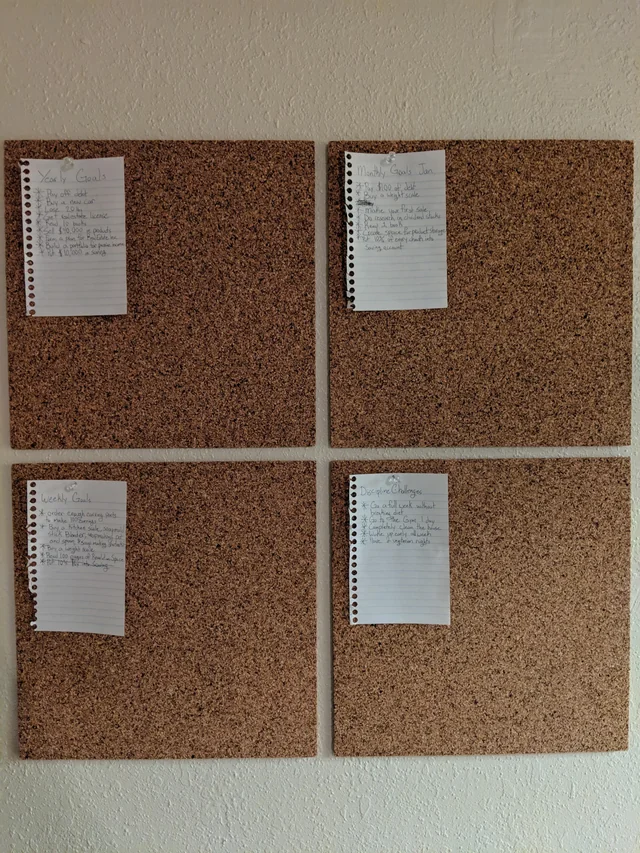 image source: reddit
image source: reddit
Setting achievable goals for personal growth and recovery can provide direction and motivation in your journey to overcome childhood trauma. Whether it's pursuing education, career advancement, or improving relationships, setting goals allows you to focus your efforts and track your progress towards a brighter future.
48. Maybe Even Yoga
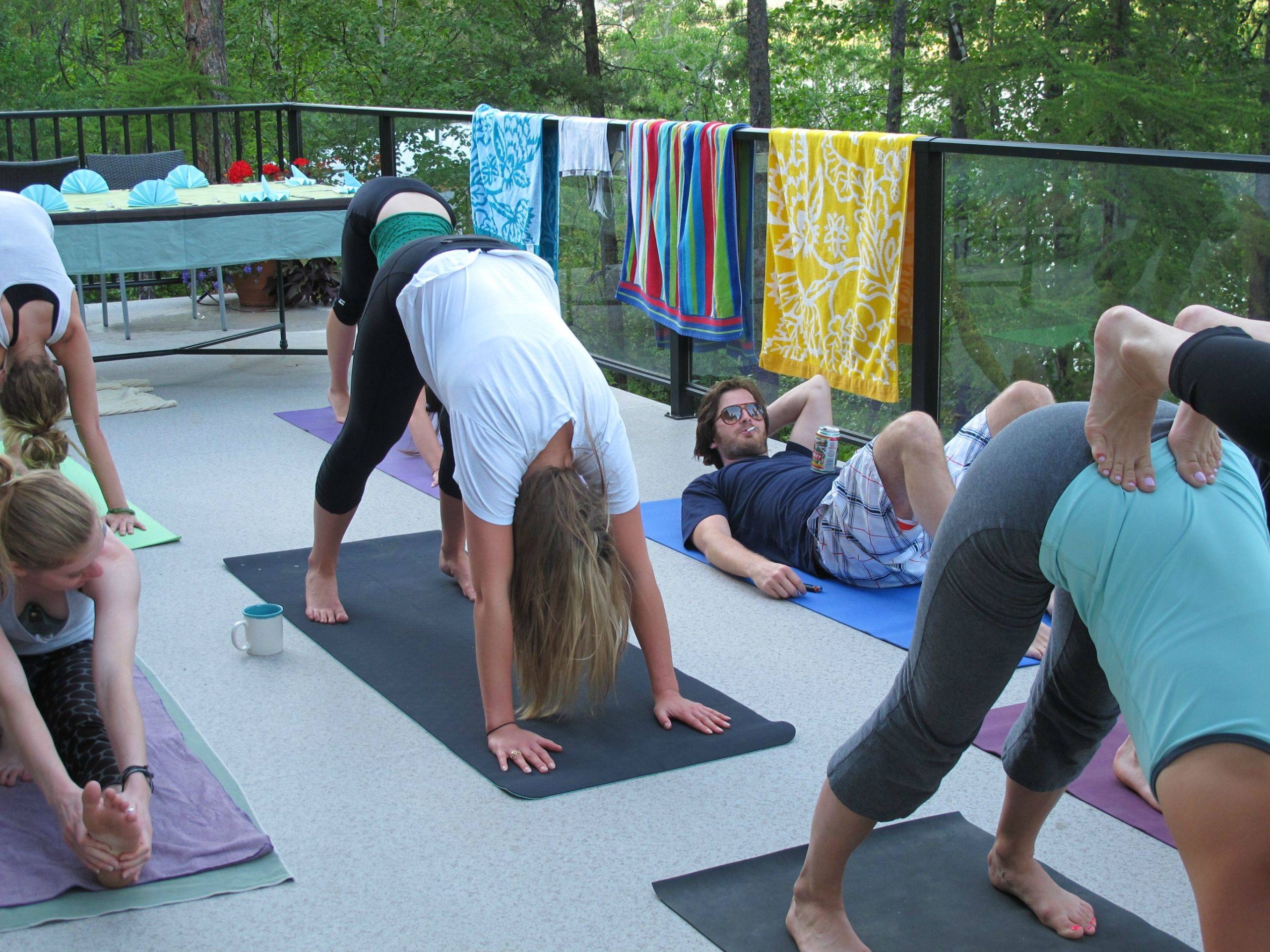 image source: reddit
image source: reddit
Practicing yoga offers a holistic approach to healing that integrates physical movement, breathwork, and mindfulness. Yoga can help reduce stress, increase body awareness, and promote emotional well-being, making it a valuable tool for managing symptoms of childhood trauma and restoring balance to your life.
49. Try Expressing Yourself Through Music
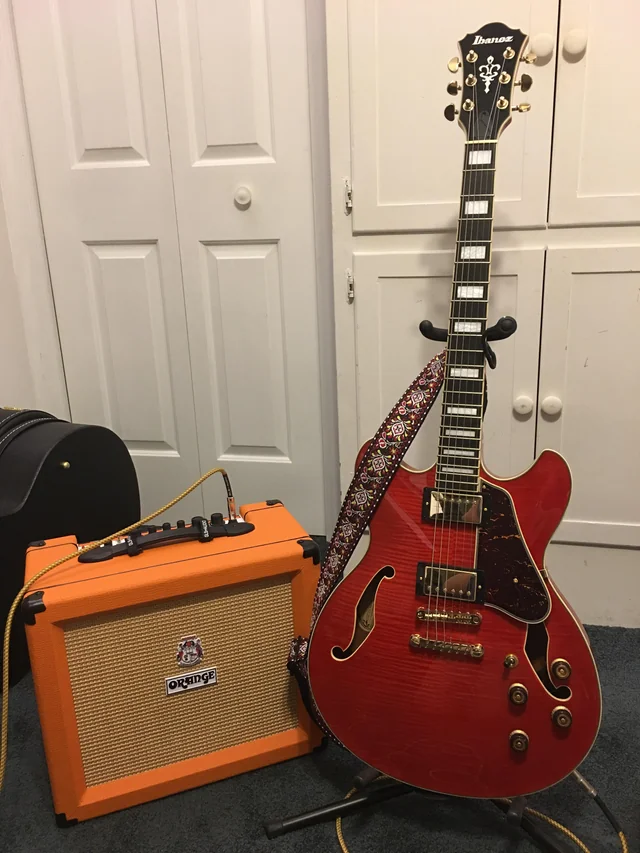 image source: reddit
image source: reddit
Music can be a powerful medium for processing emotions, expressing innermost feelings, and finding solace in times of distress. Whether through listening, playing an instrument, or songwriting, engaging with music allows you to tap into your emotions and find catharsis in the healing power of sound.
50. Or Potentially Even Some Art
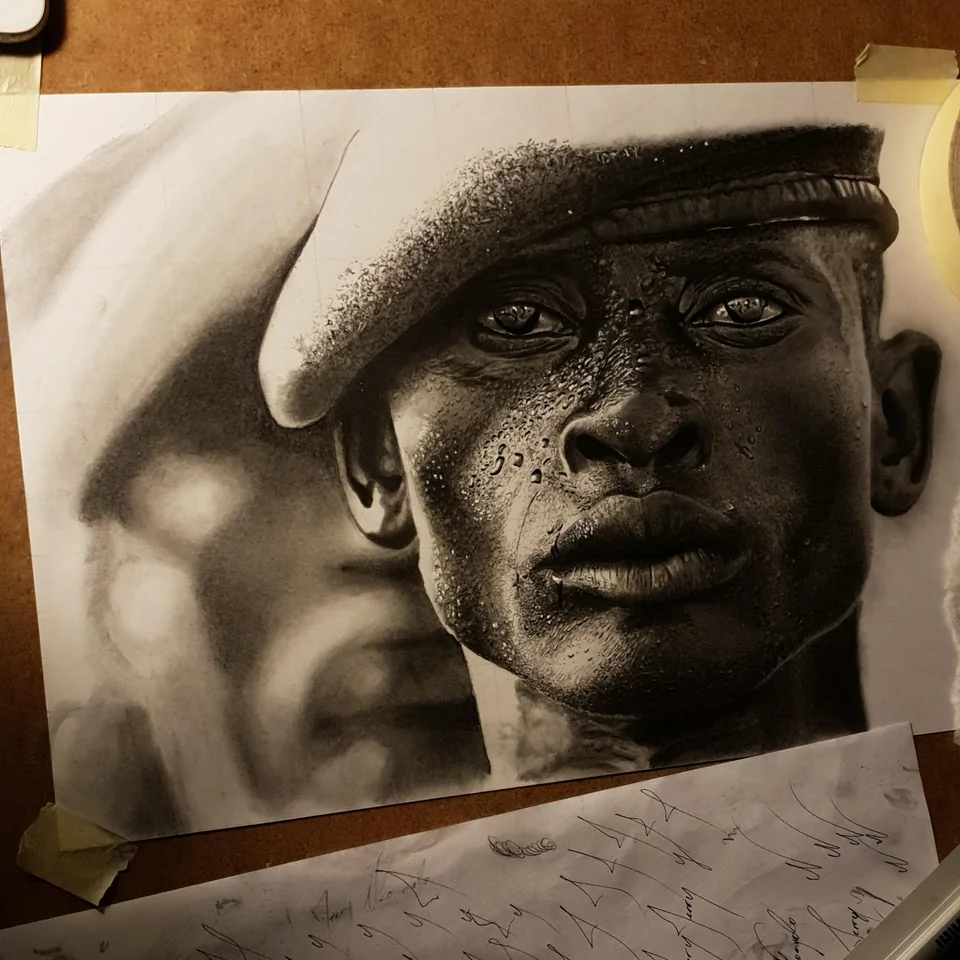 image source: reddit
image source: reddit
Engaging in artistic expression, such as drawing, painting, or sculpting, can provide a therapeutic outlet for exploring feelings and experiences related to childhood trauma. Art allows for nonverbal expression and can help you access deeper layers of emotion, promote self-discovery, and foster healing and transformation.
 image source: reddit
image source: reddit image source: reddit
image source: reddit image source: reddit
image source: reddit image source: reddit
image source: reddit image source: reddit
image source: reddit image source: reddit
image source: reddit
 image source: reddit
image source: reddit image source: reddit
image source: reddit image source: reddit
image source: reddit image source: reddit
image source: reddit image source: reddit
image source: reddit image source: reddit
image source: reddit image source: reddit
image source: reddit image source: reddit
image source: reddit image source: reddit
image source: reddit image source: reddit
image source: reddit image source: reddit
image source: reddit image source: reddit
image source: reddit image source: reddit
image source: reddit image source: reddit
image source: reddit image source: reddit
image source: reddit image source: reddit
image source: reddit Image Source: Reddit
Image Source: Reddit image source: reddit
image source: reddit image source: reddit
image source: reddit image source: reddit
image source: reddit image source: reddit
image source: reddit image source: reddit
image source: reddit image source: reddit
image source: reddit image source: university of east london
image source: university of east london image source: reddit
image source: reddit image source: reddit
image source: reddit image source: verywell mind
image source: verywell mind image source: reddit
image source: reddit image source: reddit
image source: reddit image source: reddit
image source: reddit image source: reddit
image source: reddit image source: reddit
image source: reddit image source: reddit
image source: reddit image source: reddit
image source: reddit image source: reddit
image source: reddit image source: reddit
image source: reddit image source: reddit
image source: reddit image source: reddit
image source: reddit image source: reddit
image source: reddit image source: reddit
image source: reddit image source: reddit
image source: reddit image source: reddit
image source: reddit